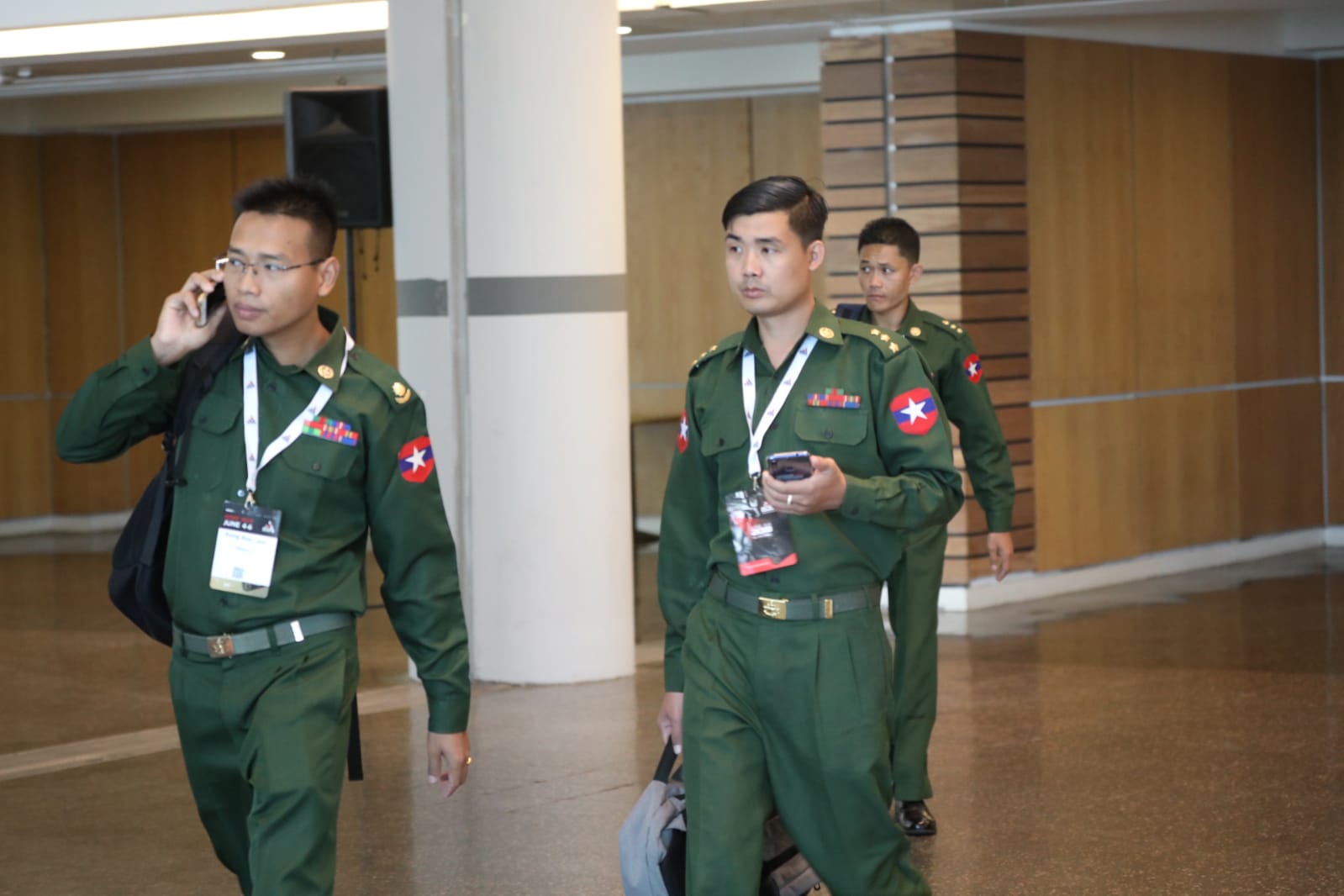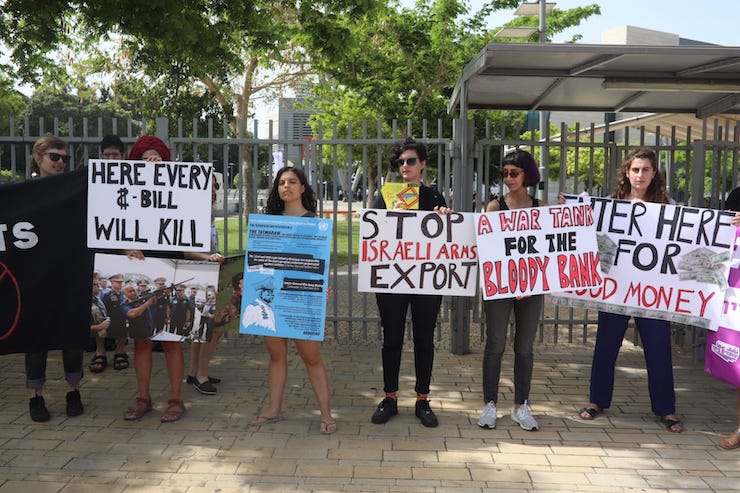Israel continues to supply arms and training to the regime in Myanmar, despite its genocide against the Rohingya people.

Representatives of Myanmar’s military attended Israel’s largest, government-supported security and weapons conference in Tel Aviv on Tuesday. The officials arrived at the Tel Aviv Expo Center for the International Defense, HLS & Cyber Expo, known as ISDEF, in full military gear. There they browsed through defense equipment and technologies produced by Israeli and international companies, alongside delegates of dozens more countries.
Top Myanmar army officials traveled to Israel in September 2015 for a “shopping spree” with Israeli weapons manufacturers. They also met with President Reuven Rivlin, the IDF chief of staff, as well as the head of the Defense Ministry’s International Defense Cooperation Directorate.
Israel supposedly stopped selling advanced weaponry to Myanmar in 2017 following petitions filed by human rights activists and attorney Eitay Mack to Israel’s High Court of Justice. Based on court hearings and statements made by Myanmar army officers, some of the arms that Israel has supplied include rifles, gunboats, and military training. The court has kept its ruling secret, however, and Israel does not allow any official publication of its arms trade with Myanmar.

According to the report produced by the UN’s Fact-Finding Mission on Myanmar, the military has committed massive violations against the Rohingya people, a Muslim minority group in the country, including gang rapes, forced disappearances, and the burning of hundreds of villages. Hundreds of thousands more displaced Rohingya civilians live in refugee camps in neighboring Bangladesh. The report specifically names six senior commanders as most responsible for the human rights abuses, including the Tatmadaw Commander in Chief, Senior-General Min Aung Hlaing, who previously met with the Israeli army’s Chief of Staff on a visit to Israel.
According to the United Nations, the ongoing human rights atrocities committed by Myanmar’s military against the Rohingya people amount to crimes against humanity and genocide. The European Union extended an embargo on arm sales to Myanmar in April and UN officials have urged the international community to cut off all support for the country’s military. Israel has a history of selling weapons to dictatorships, among them the juntas in Argentina and Bolivia, Rwanda in the years leading up to the genocide, among others.
Also at the expo were representatives from South Sudan, including diplomat William Ador. Since 2013 the country has been torn by a civil war that has left nearly 400,000 dead and forced millions from their homes or to the brink of starvation. The two sides signed a new peace deal in September, although the fighting and human rights abuses continue. The U.S., EU, and UN Security Council have all imposed an arms embargo on the country.
Activists with Amnesty International, the Hamushim (“Armed” in Hebrew) Project, and the Israeli grassroots group Standing Together protested outside the conference venue. “We demand that Israel stop producing arms and surveillance equipment to countries that commit grave human rights violations,” said Chen Bril Egri, Amnesty’s head of campaigns for refugees and asylum seekers. “We explained to potential customers that the Israeli arms they are purchasing was used to commit genocide in Myanmar, ethnic cleansing in Sudan, extrajudicial killings in the Philippines, in addition to surveillance against regime resistors and human rights activists in Mexico and the UAE.”
“Israeli companies market their weapons and technology as tried and tested in the field, after they’ve used them in the West Bank and Gaza Strip at the expense of the lives and personal safety of Palestinians,” said Daniela Freund, an activist with Coalition of Women for Peace’s Hamushim Project, which seeks to expose the true human price of the Israeli arms industry. “Israeli arms exports has become a thriving business, and the weapons industry profits from the occupation,” she added.
Deputy Chief of Staff Maj. Gen. Yair Golan, who is viewed as a possible candidate for the leadership of the Labor Party, delivered the opening speech of the expo, saying that “we must examine in what ways modern means can improve our fighting ability based on lessons learned from the past.” In 2016, Golan raised controversy during a speech he delivered on Holocaust Remembrance Day when he said: “It is frightening to identify the horrifying processes among us that took place in Germany 70-80 years ago.”
This article was first published in Hebrew on Local Call. Read it here.

